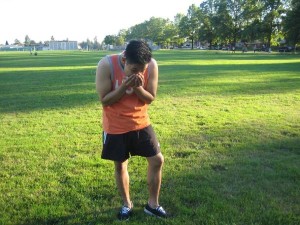There is no remedy to treat the common cold as many strains of viruses contribute to the medical condition. Additionally, you must bear in mind that antibiotics are used to treat bacterial infections; therefore, they are ineffective on viral infections such as common colds. Over-the-counter cold medication does not cure common cold and often cause many side effects thus, it is best to avoid their use. The following information will give you an idea of what to use while suffering from a common cold:
- Over-the-counter pain relievers. To treat sore throats, fever and headaches, you may consider taking over-the-counter pain medicines such as acetaminophen or other pain relievers. Do not take more than the recommended dosage of acetaminophen as it can greatly contribute to liver damage. Children under 3 months should not be given acetaminophen. Make sure you are careful while giving older infants acetaminophen because the required dosage may be confusing. Do NOT give aspirin to children as it is associated with Reye’s syndrome.
- Cough syrups. The Food and Drug Administration (FDA) recommends that children under the age of 2 should not be given over-the-counter cough syrups or cold medicines. These medications will not relieve the child’s condition and will not alleviate the symptoms either. Moreover, cough syrups and cough medicines cause severe side effects such as convulsions and rapid heartbeat.
- Decongestant nasal sprays. Prolonged use of decongestant nasal sprays can lead to chronic rebound inflammation of mucous membranes; therefore, adults should not use sprays or drops for more than a few days. Decongestant sprays should not be used in children at all as they are ineffective and cause side effects.
Alternative medicine
You can always relieve the symptoms of cold using vitamin supplements and herbs that may cure the condition. The following are a few widely used supplements and herbs used by many people to cure colds:
- Vitamin C. Vitamin C may not cure the cold or relieve its symptoms, but taking vitamin C upon the onset of the cold can shorten its duration
- Zinc. Even though zinc is a very helpful mineral that relieves colds, the exact dosage or formulation for zinc has not been determined yet. Many candidates report that zinc lozenges leave a bad taste in the mouth and also cause nausea as well. Zinc-based nasal sprays may take away your sense of smell—permanently
- Echinacea. When Echinacea is taken during the early onset of the cold, studies show that it can greatly reduce the duration of the condition
Additional Information and Training
Typically a cold is not a life threatening emergency that requires immediate first aid or CPR. To learn more about severe breathing emergencies such as asthma, choking and anaphylaxis enrol in workplace approved first aid and CPR training with a credible provider near you.
Related Video to Treating Colds

